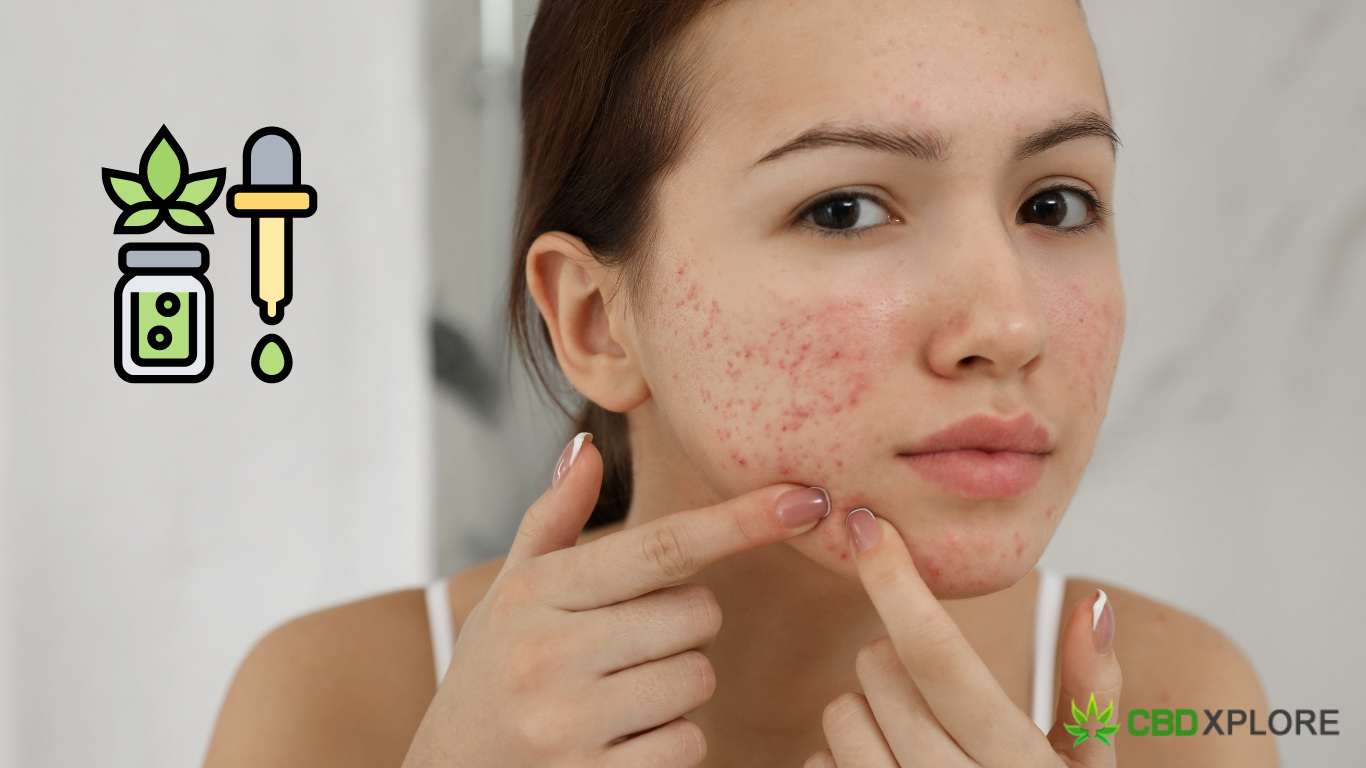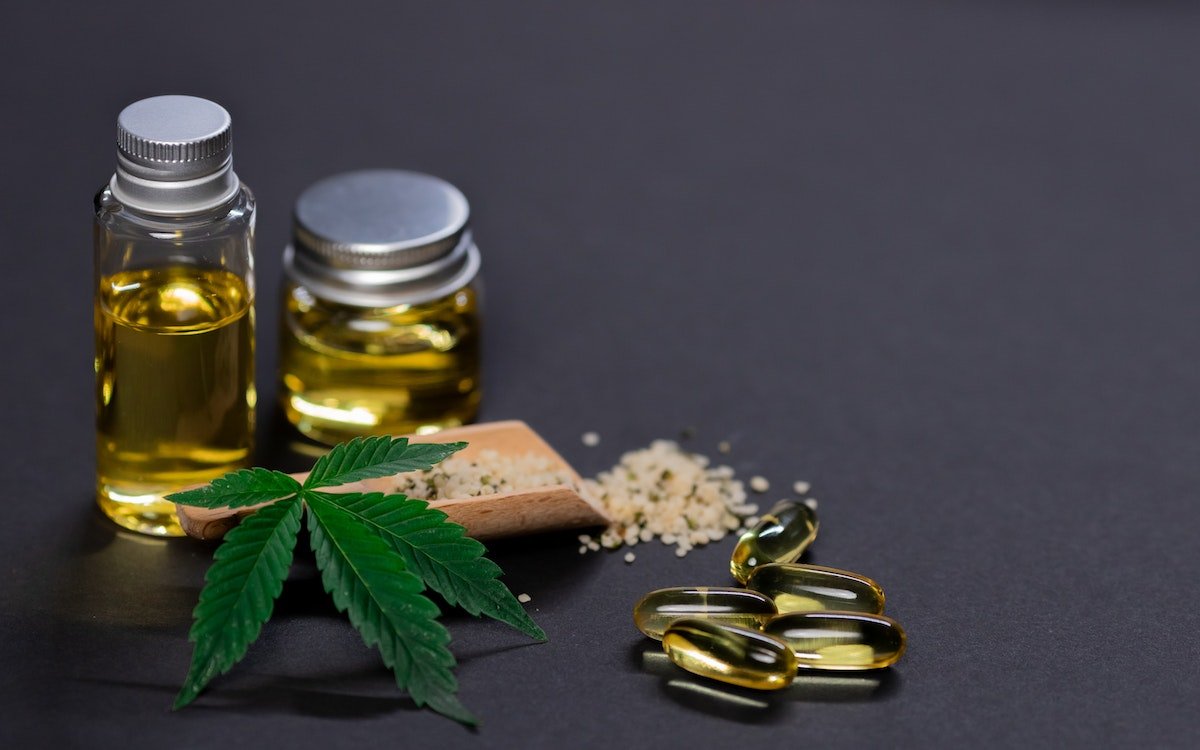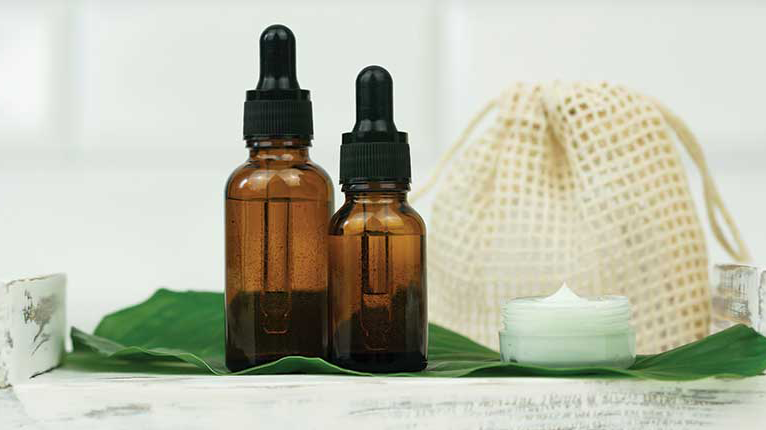CBD for Acne: Can it Clear Up Your Skin?

CBD for Acne: Acne is a most common skin condition that affects millions of people worldwide and causes both physical and mental distress. Acne may have a substantial adverse influence on an individual’s quality of life and self-esteem, and this is the fact that people of all ages, including adolescents are coping with the hormonal changes that come with adolescence and adults who experience recurring breakouts.
Although there are therapies for acne that have been around for a very long time, there is an increasing interest in finding alternative options, and CBD (Cannabidiol) has emerged as a possible choice. This piece will look at how CBD might help acne by looking at its possible benefits, how to use it, and scientific evidence.
Explore the Contents
Understanding Acne
Understanding the nature of acne is necessary before diving into the potential impact that CBD may have on this skin ailment. Acne is caused by an overproduction of oil, a blockage of pores, the presence of germs, and inflammation of the skin. Whiteheads, blackheads, papules, pustules, and cysts are the five most frequent forms of acne that people experience. These marks can appear anywhere on the body, including the face, neck, back, chest, and shoulders. Several things, including hormone swings, environmental triggers, and hereditary predispositions, can cause acne.
What is CBD?
CBD, more commonly referred to as Cannabidiol, is a chemical that occurs naturally in hemp and is extracted from that plant. However, CBD is not psychoactive in the same way that its more famous counterpart, tetrahydrocannabinol (THC). This means that it does not result in feeling “high.” The potential therapeutic benefits of Cannabidiol (CBD), which go beyond the cannabinoid system in the body that it interacts with, are largely responsible for the recent surge in CBD’s popularity. Although it is important to note that CBD products are legal in many areas, it is crucial to check local restrictions before use. While this is the case, it is important to highlight that CBD products are legal.
Can CBD Treat Acne

In recent years, Cannabidiol, sometimes known as CBD, has received much interest because of its possible health benefits. Acne, a widespread skin problem affecting millions of individuals worldwide, is one area of study about the potential of this compound to cure the condition. Although more research needs to be done, preliminary findings suggest that Cannabidiol (CBD) may favor acne-prone skin.
Inflammation, excessive sebum production, and overgrowth of germs on the skin are the primary contributors to acne. CBD has been discovered to possess anti-inflammatory characteristics, which can help lessen the inflammation, redness, and irritation linked with acne. CBD may promote a healthy complexion and prevent acne breakouts by reducing the skin’s inflammatory response.
Additionally, CBD has shown the capacity to limit sebum production, an oily material that can cause pores to become clogged and contribute to the development of acne. CBD may help prevent the development of comedones (also known as blackheads and whiteheads) and lower the incidence of acne outbreaks. It does this by regulating the production of sebum in the skin.
The antibacterial qualities of CBD are yet another possible benefit of using it to treat acne. Studies have revealed that Cannabidiol, or CBD, can successfully inhibit the growth of specific types of bacteria usually linked to acne, such as Propionibacterium acnes. CBD may help reduce the creation of infected pimples by inhibiting bacterial colonization on the skin, which causes acne.
Even though CBD has some potential as a treatment for acne, it is essential to remember that additional research is required to understand its efficacy and safety completely. Before introducing CBD into your current skincare routine, it is strongly suggested that you speak with a dermatologist or other qualified healthcare practitioner. In addition, the outcomes may differ from person to person, and it is essential to treat the underlying causes of acne, such as hormone imbalances or nutritional variables, to provide comprehensive treatment.
The Potential Benefits of CBD for Acne
Due to the anti-inflammatory effects of CBD, it has recently come to the attention of researchers as a possible acne treatment. Acne is frequently accompanied by redness, edema, and inflammation, making outbreaks appear more severe. Studies have indicated that CBD has the potential to reduce inflammation, which may help soothe inflamed skin and reduce the redness that is linked with acne.
Additionally, it has been discovered that CBD can control sebum production, which is an essential component in the formation of acne. The sebaceous glands in the skin produce an oily material known as sebum. When there is an excess of sebum production, it can cause the pores to become clogged and lead to the development of acne. CBD has been shown to have the ability to modify sebum production, which may reduce the risk of clogged pores and acne breakouts.
People who struggle with acne may benefit from CBD’s antibacterial characteristics and its ability to reduce inflammation and regulate sebum production. A bacteria called Propionibacterium acnes plays a role in the development of acne lesions. This bacterium frequently makes acne worse. CBD has been proven to have antibacterial properties against this specific strain of bacteria. This could assist in lowering the number of bacteria on the skin and minimize the irritation associated with acne.
Scientific Studies and Evidence
It is necessary to investigate the scientific data that supports the claims that CBD may be beneficial for acne, even though the potential benefits of CBD for acne are fascinating. Several studies have been conducted to study the effects of CBD on acne. The findings of these studies have provided useful insights into the effectiveness of CBD as a treatment for acne.
According to the findings of a study published in the Journal of Clinical Investigation, CBD drastically reduced sebum production in human sebocytes, which are the cells responsible for producing sebum. Acne vulgaris is the most common form of acne, and the researchers concluded that CBD could be a viable therapeutic agent for treating acne vulgaris.
Researchers at the University of Debrecen in Hungary carried out an additional investigation on the effects of CBD on human skin cells. Based on the findings, Cannabidiol (CBD) has anti-inflammatory effects and prevents the growth of cells associated with acne. Based on these data, CBD may have a beneficial effect on the treatment of acne.
Even while these studies give some encouraging preliminary findings, it is vital to note that additional study is required to understand how CBD works and how it affects acne over the long term.
Also Read: How CBD is Used for Skincare and Beauty
How to Use CBD for Acne
When considering CBD as a skincare option for acne, it’s crucial to understand how to incorporate it into your routine effectively. CBD-infused skincare products are available in various forms, including creams, serums, oils, and cleansers. Topical application is the most common method for using CBD for acne.
Before using any CBD product, it’s advisable to perform a patch test to check for potential allergic reactions or skin sensitivities. Apply a small amount of the product to an inconspicuous area of your skin, such as the inner forearm, and monitor for any adverse reactions for 24 hours. If no irritation occurs, using the product on the affected areas of your skin is generally safe.
Dosage recommendations for CBD skincare products can vary depending on the concentration of CBD and the individual’s needs. It’s best to start with a lower concentration and gradually increase if necessary. Follow the manufacturer’s instructions or consult a healthcare professional for personalized guidance.
Potential Side Effects and Considerations

Before introducing CBD into your beauty routine, it is important to be aware of potential adverse effects and consider several aspects, even though CBD is generally well accepted.
At the site of application, CBD may cause dryness, redness, or irritation in some people. These are common adverse effects. In most cases, these effects are minimal and only last temporarily. However, if you have severe adverse effects or continue for an extended period, you should stop using the product and speak with a healthcare expert.
It is essential to be aware that CBD can interact with some drugs, particularly those broken down by the liver. If you are currently taking any drugs, you should discuss using CBD products with a qualified medical expert before beginning treatment with these products to rule out the possibility of any negative reactions. They can provide direction based on your particular circumstances and drugs.
Individuals with sensitive skin or a history of allergic reactions should exercise extreme caution when utilizing CBD skincare products. It is vital to pay attention to adverse reactions to CBD and modify dosage accordingly, even though CBD is generally well tolerated. This is because everyone’s skin reacts differently, which is important to remember.
It is highly recommended that you seek the advice of a dermatologist or other skin care professional, especially if you have severe or persistent acne. They can assess the health of your skin, offer individualized advice, and assist you in determining whether or not CBD is appropriate for you.
Other Skincare Tips for Acne-Prone Skin
While CBD may show promise in managing acne, it’s essential to adopt a comprehensive approach to skincare. Here are some additional tips to consider for acne-prone skin:
- Stick to a consistent skincare routine: Cleanse your face twice daily with a gentle cleanser suitable for your skin type. Avoid harsh scrubbing or over-washing, as it irritates the skin and exacerbates acne.
- Choose non-comedogenic products: Look for skincare and cosmetic products labeled as non-comedogenic, meaning they won’t clog pores. These products are less likely to contribute to the formation of acne.
- Be mindful of lifestyle factors: Maintain a healthy lifestyle by eating a balanced diet, staying hydrated, managing stress levels, and exercising regularly. These factors can impact the health of your skin.
- Avoid touching or picking at your skin: Touching your face or picking at acne lesions can introduce bacteria and worsen inflammation. Keep your hands away from your face as much as possible.
- Protect your skin from the sun: Use a broad-spectrum sunscreen with at least SPF 30 outdoors. Sun exposure can lead to inflammation and potential acne flare-ups.
User Experiences and Testimonials
Personal experiences and testimonials can provide valuable insights into the effectiveness of CBD for acne. However, it’s important to remember that individual experiences may vary, and what works for one person may not work for another. Factors such as the severity of acne, skin type, and other skincare practices can influence outcomes.
When considering user experiences, look for reputable sources and platforms where individuals share their stories. Pay attention to both positive and negative feedback to gain a well-rounded understanding.
Conclusion
In conclusion, CBD shows potential as a skincare treatment for acne due to its anti-inflammatory properties, regulation of sebum production, and antibacterial effects. Scientific studies have provided encouraging results, although further research is needed to establish its efficacy and safety fully.
If you’re considering using CBD for acne, it’s essential to consult with healthcare professionals, perform patch tests, and choose high-quality CBD products from reputable sources. Incorporate CBD into a comprehensive skincare routine that includes gentle cleansing, non-comedogenic products, and healthy lifestyle practices.
While CBD may benefit some individuals, it’s important to remember that skincare is highly individualized, and what works for one person may not work for another. Be patient, consistent, and open to exploring other options if needed.






One Comment